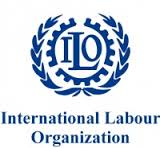Following World War One, the Treaty of Versailles contained the primary constitution of a new International Labour Organisation founded around the principle that “labour just isn’t a commodity”, and for the reason that “peace can be established only if it is based upon social justice”. The leading role of the ILO has been to coordinate principles regarding international labour law through issuing Conventions, which codify manual work laws on all concerns. Members of the ILO could voluntarily adopt and ratify the conventions by enacting the foundations in their domestic regulation. For instance, the first Hours of Work (Industry) Meeting, 1919 requires a maximum of your 48 hour week, and has been ratified by 52 outside of 185 member states. Britain ultimately refused to ratify the Convention, as did numerous current EU members states, although the Working Moment Directive adopts its rules, subject to the personal opt-out.
International Labour Organization
















